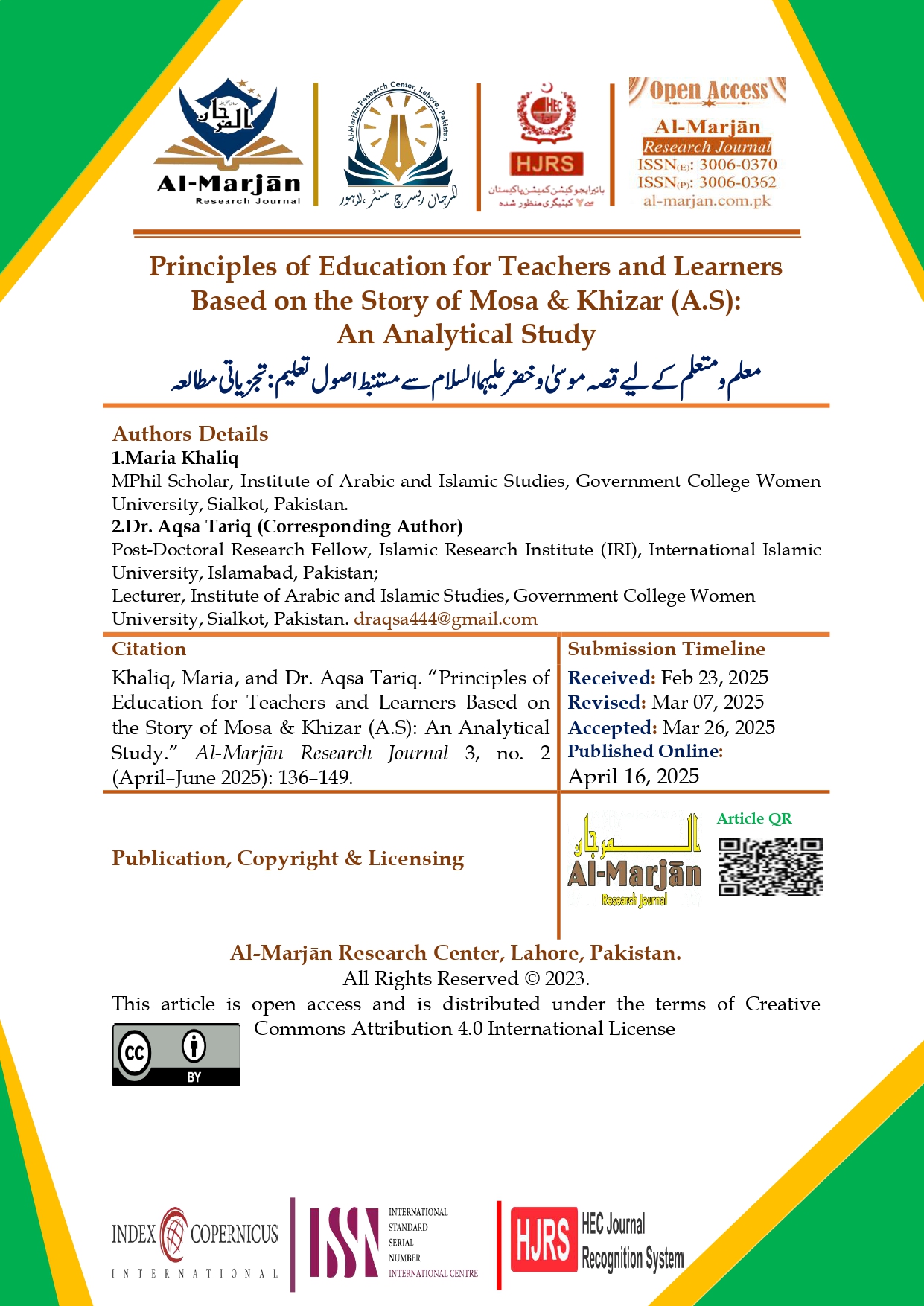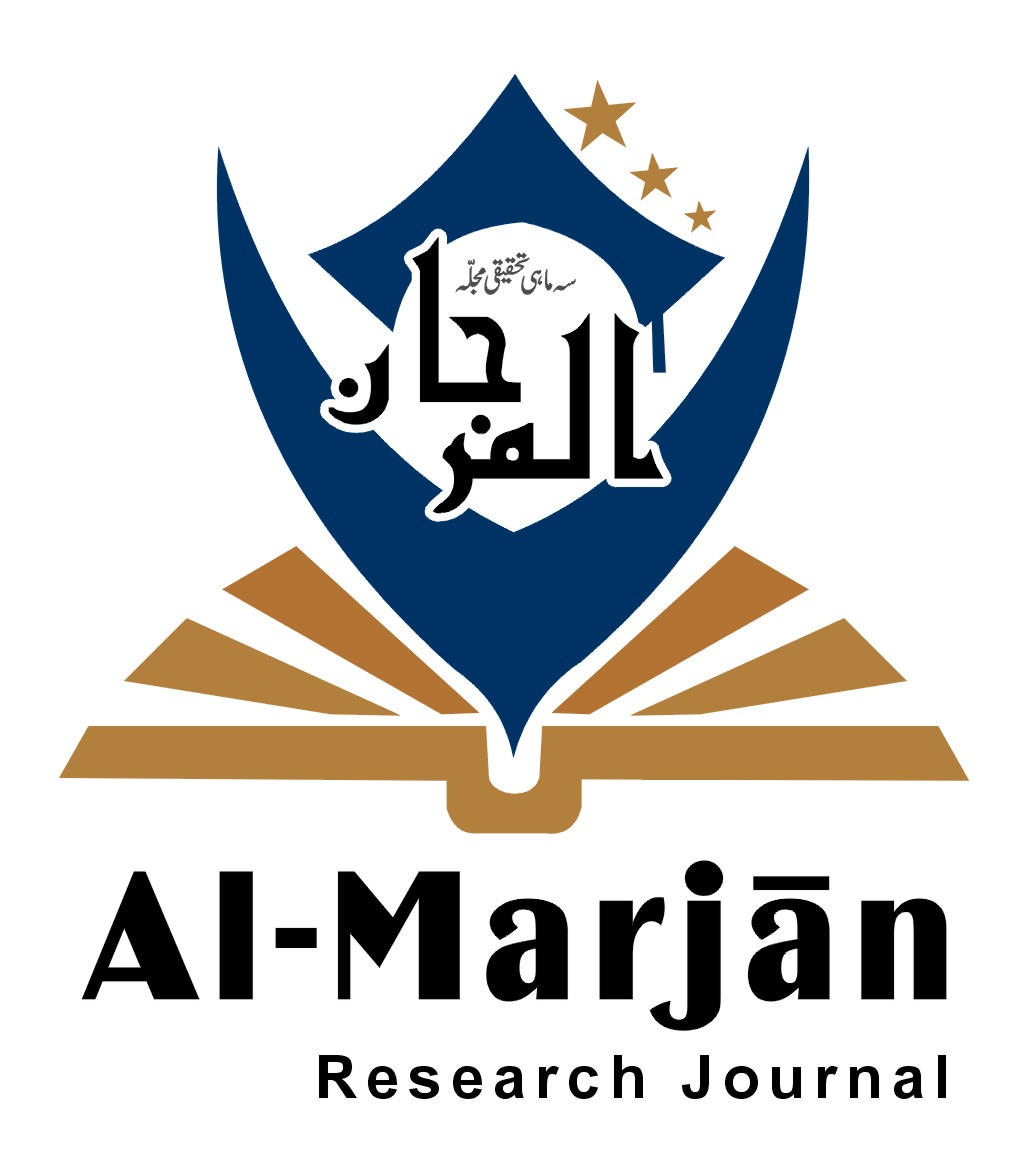Principles of Education for Teachers and Learners Based on the Story of Mosa & Khizar (A.S): An Analytical Study
معلم و متعلم کےلیےقصہ موسیٰ وخضرعلیہماالسلام سےمستنبط اصول تعلیم: تجزیاتی مطالعہ
DOI:
https://doi.org/10.1234/63tcyy62Keywords:
Qasas ul Quran , Musa A.S, Khidr A.S , Knowledge acquisition, educational principal, Teacher, LearnerAbstract
Allah Almighty sent prophets in every era with divine law and miracles for the guidance and direction of mankind. The prophets invited people toward the path of truth. The final link in this chain is the blessed Prophet hood of the Holy Prophet Muhammad (PBUH). Allah granted him the Holy Qur’an as an everlasting miracle, which will remain a complete source of guidance and direction for all of humanity until the Day of Judgment. The Holy Qur’an provides guidance regarding every aspect of life. In it, Allah has used various miraculous styles to guide and instruct people. One of these styles is the narration of stories (Qasas). Human beings, by nature, quickly learn lessons and take advice from the experiences and events of others. That is why Allah has repeatedly mentioned the stories and events of previous prophets and past nations in the Qur’an, so that people may learn from them. One such story is the account of Prophet Musa (Moses) and Khidr (A.S). This narrative is not merely a historical tale; rather, it contains numerous intellectual, moral, and educational lessons. Along with the educational process, this study also highlights the importance of the student-teacher relationship and the significance of their respective roles. Furthermore, the paper sheds light on the influence, authority, and responsibilities of the teacher. On one hand, this paper presents structured principles for acquiring knowledge, and on the other hand, it uncovers countless educational and moral benefits which, if practiced, can lead a person not only to success in this world but also in the Hereafter.
Downloads





































